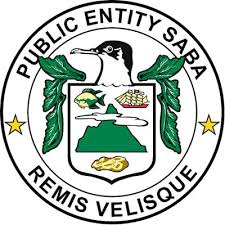What’s the Buzz About?
- Emily

- May 22, 2025
- 3 min read
Celebrating Saba’s Pollinators: Why Bees Matter and How You Can Help Protect Them

When most people think of bees, their minds go straight to the honeybee. But the world of bees is astonishingly diverse, with over 20,000 species found globally. Here on Saba, we’re lucky to have our own cast of buzzing characters, including the quiet, tireless stingless bees that are native to the tropics, a variety of solitary bees that prefer to go it alone rather than live in hives, and the occasional visit from honeybees, especially near gardens and flowering fruit trees. Each species plays a unique and essential role in pollinating plants, maintaining biodiversity, and helping our forests and farms flourish.
Why Bees Matter (Hint: It’s More Than Honey)

Bees are far more than just honey producers—they’re among the world’s most important pollinators. That means they help plants reproduce by transferring pollen from one flower to another, enabling fruits, vegetables, seeds, and nuts to grow. Without bees, we’d lose a huge portion of the foods we rely on and the native plants that make our island beautiful and ecologically balanced. On Saba, bees support everything from the lush rainforests and vibrant flowering plants to the fruit trees that provide food for both people and wildlife. In short, bees are vital to our health, our environment, and our way of life.
Trouble in the Hive
But bees around the world—including those on Saba—are facing serious threats. Habitat loss from development, pesticide use, and climate change are all taking a toll. Changing temperatures and rainfall patterns can throw off blooming schedules and food availability, while invasive pests and diseases can spread quickly on a small island, devastating native bee populations. These challenges are complex, but there’s good news: by learning about bees and taking action, we can help protect them.
World Bee Day is a global reminder of how important bees—and other pollinators—are to life as we know it. On Saba, their role is huge. From wildflowers to fruit trees, bees help sustain the island’s rich biodiversity and food systems. And if you joined us earlier this year for Critter Quest, you know just how fascinating these creatures are.
Looking Back at Critter Quest

Between January and March, various scientists scoured the island seeking Saba's invertebrates, particularly insects during Critter Quest. Some experts had a special focus on bees, and they shared how to identify species, cool bee facts, and engaged with the community. We’re still buzzing from all the amazing observations—and some of those bee sightings are now helping researchers learn more about which species call Saba home. In case you missed the buzz, you can watch all of the Critter Quest presentations on our YouTube channel.

Keep the Buzz Going with iNaturalist
Just because Critter Quest is over doesn’t mean the fun (or the science) has to stop! You can keep the momentum going with iNaturalist. Even though Critter Quest has wrapped up, iNaturalist lets you continue being a citizen scientist any time of year. All it takes is a smartphone and a little curiosity. If you see a bee (or any other interesting plant or animal), just snap a photo, upload it to the app, and your observation becomes part of a global biodiversity database. Scientists use this data to track species populations, monitor changes in ecosystems, and even make conservation decisions. Your one sighting could be a missing puzzle piece in a much bigger picture.
Bee Spotting Tips
Want to celebrate the right way? Grab your camera or phone and head outside. Bees love:
Morning light and flowering plants
Native shrubs and forest edges
Gardens with hibiscus, passionfruit flowers, and more
Let’s make World Bee Day a celebration not just of bees, but of the amazing web of life they support. By learning, observing, and sharing what we see—through tools like iNaturalist—we’re not just appreciating nature, we’re helping to protect it. So this May 20th, let’s give a round of applause to the real MVPs of the island: the bees. And let’s keep Saba buzzing with life for generations to come.
Supported by NEPP: protecting nature, reviving resources, sustaining our islands.








Comments